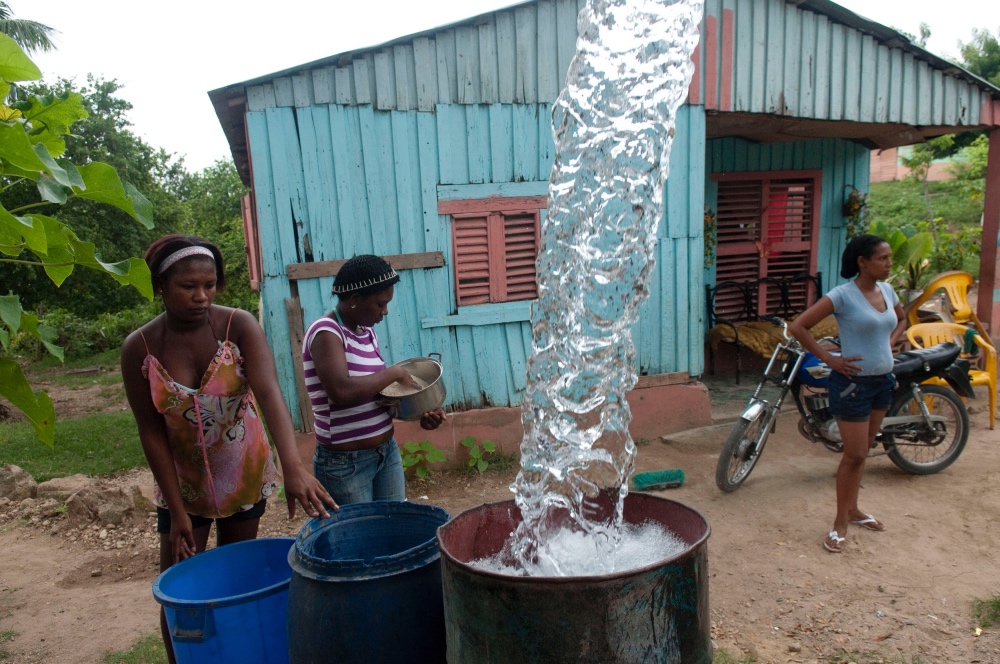Santo Domingo, Dominican Republic
Thomson Reuters Foundation
The Dominican Republic has plenty of water – unless, that is, you are poor.
Nearly one in every two households in the Caribbean nation has no running water, relying instead on expensive private deliveries that have been badly disrupted by the coronavirus, just as they are most needed.

Women fill receptacles with potable water in Nigua, on 30th August, 2013. PICTURE: Reuters/Ricardo Rojas/File photo
As a result, millions of people have found themselves without water in the Dominican Republic, which has one of the highest rates of coronavirus infection in the Caribbean.
In the small remote shantytown of Batey of Palavé, where many sugar cutters live, the only water available must be purchased.
“During quarantine, we had to go to the river. We could not obey the curfew because we had to go looking for water to bathe,” said resident Ana Dealina.
Now the water trucks have returned, selling 12 buckets for about $2, but residents save it for cooking in a country where the average yearly wage is about $2,000.
Another neighbourhood called Vietnam only gets water through a pipeline once a week, and residents say it is dirty.
Yet there is plenty of water in the country, said economist Ati Cañete, advisor for the charity Oxfam and the Economic Commission for Latin America and the Caribbean.
“What has been lacking is the prioritization of the population as a whole in government planning,” said Cañete, calling for families living in over-crowded homes to be taught how to fight the virus with prevention measures and hygiene.
In the Valdesia region, only a quarter of households have access to water, yet the region’s dam supplies water to the capital city of Santo Domingo.
Before the pandemic, water arrived four times a week for about four hours in La Ciénaga, a slum of Santo Domingo.
Now, said resident Susana Consuegra who lives in a house with two other families, deliveries are unscheduled and down to three days a week. No water is delivered on weekends.
When water does arrive, it only lasts from 5am to 7am, she said.
Some families in Ciénaga have gone three or four days without water, and they crowd around the houses that do get water or buy expensive bottled water, she said.
According to authorities, malaria infections this year number 560 new cases in the first five months of this year, compared with 186 reported in 2019.
Also in May, a record 3,165 cases of dengue were registered.
Both diseases are spread by mosquitoes that breed in standing water.
A water law proposal to manage resources has been discussed in Congress for more than 20 years, said Camila Rodriguez, an Oxfam specialist.
It has been approved by the Senate and awaits further action this summer.






